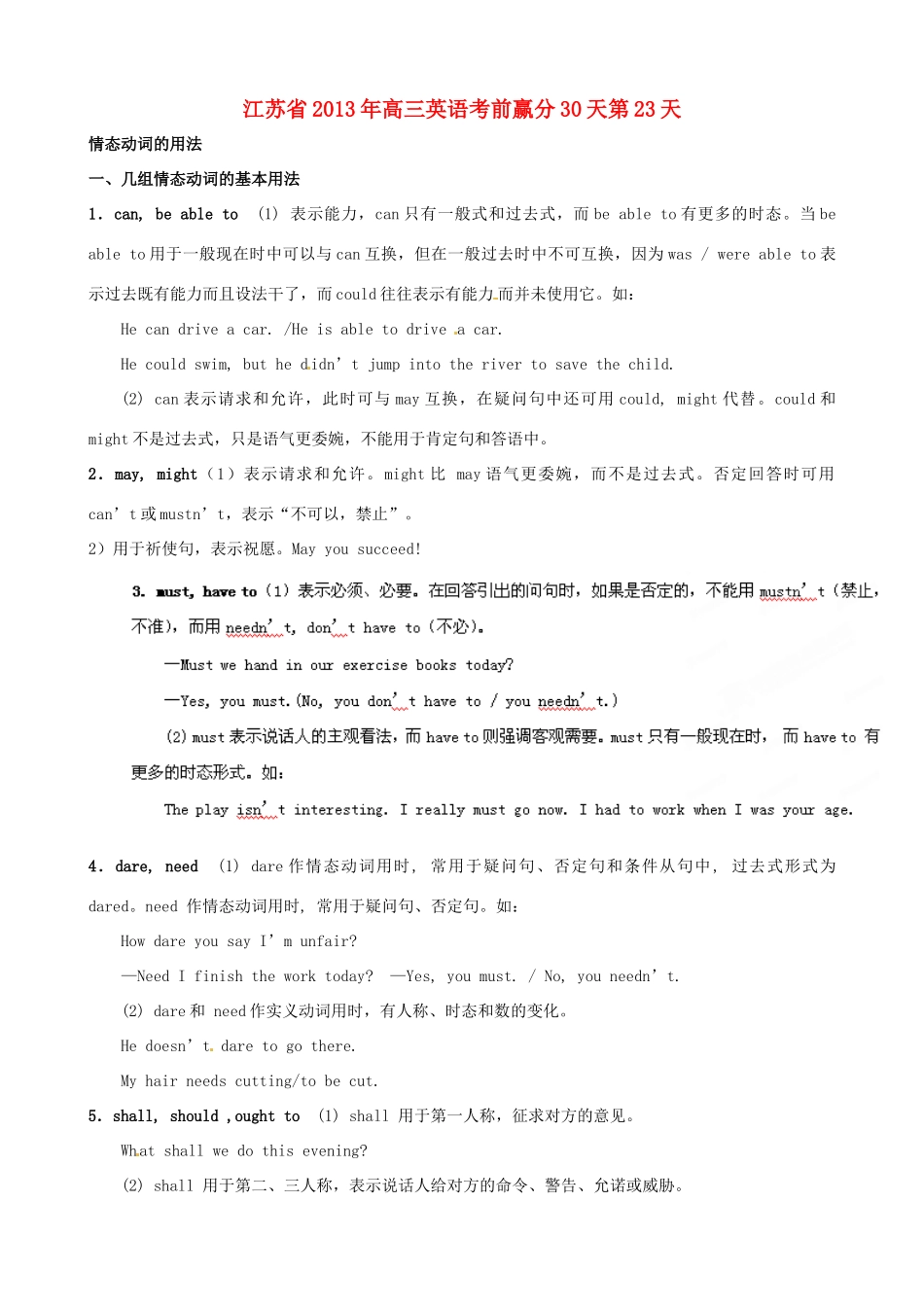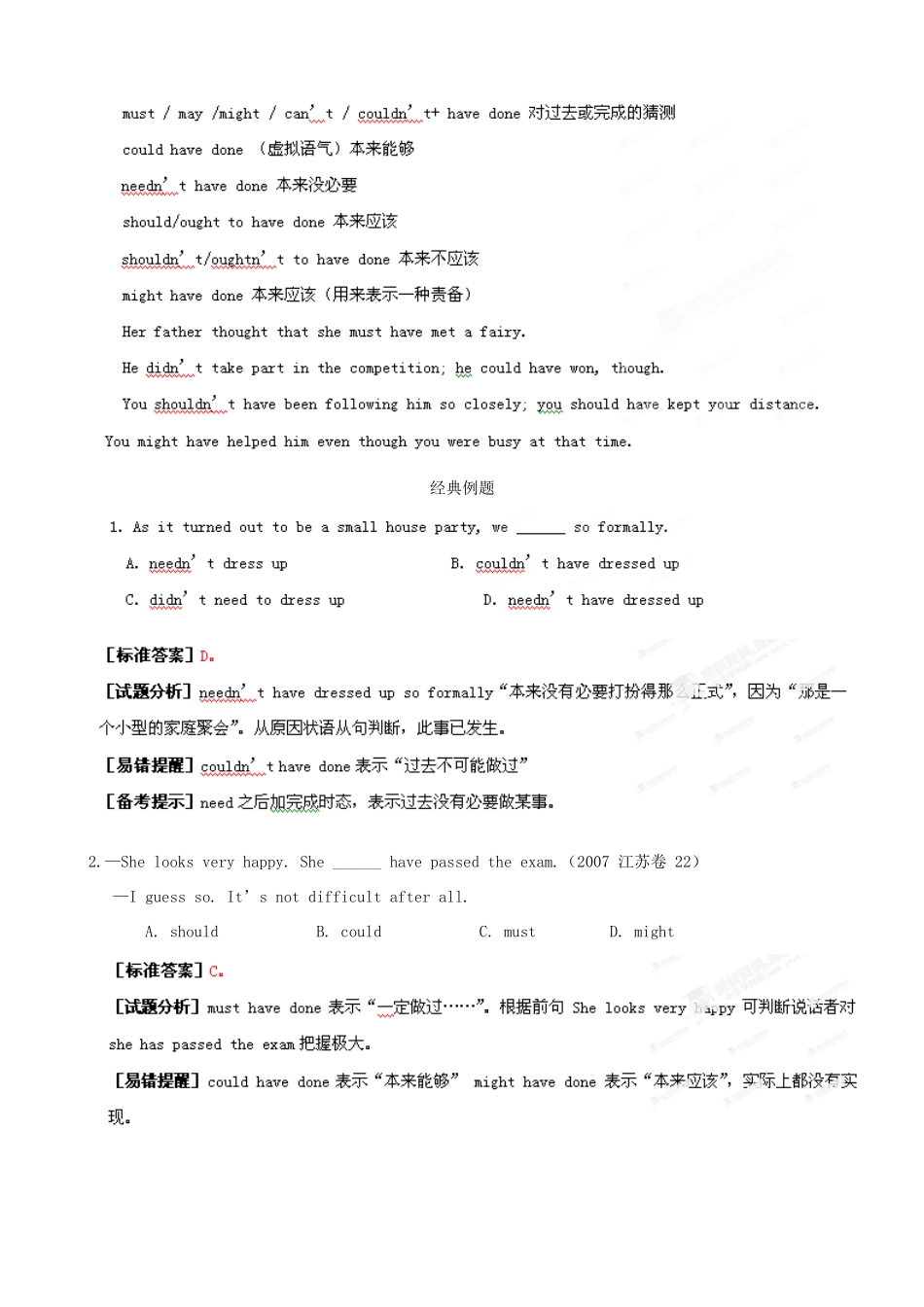江苏省 2013 年高三英语考前赢分 30 天第 23 天情态动词的用法一、几组情态动词的基本用法1.can, be able to (1) 表示能力,can 只有一般式和过去式,而 be able to 有更多的时态。当 be able to 用于一般现在时中可以与 can 互换,但在一般过去时中不可互换,因为 was / were able to 表示过去既有能力而且设法干了,而 could 往往表示有能力 而并未使用它。如:He can drive a car. /He is able to drive a car.He could swim, but he didn’t jump into the river to save the child.(2) can 表示请求和允许,此时可与 may 互换,在疑问句中还可用 could, might 代替。could 和might 不是过去式,只是语气更委婉,不能用于肯定句和答语中。2.may, might(1)表示请求和允许。might 比 may 语气更委婉,而不是过去式。否定回答时可用can’t 或 mustn’t,表示“不可以,禁止”。2)用于祈使句,表示祝愿。May you succeed!4.dare, need (1) dare 作情态动词用时, 常用于疑问句、否定句和条件从句中, 过去式形式为dared。need 作情态动词用时, 常用于疑问句、否定句。如:How dare you say I’m unfair?—Need I finish the work today? —Yes, you must. / No, you needn’t. (2) dare 和 need 作实义动词用时,有人称、时态和数的变化。He doesn’t dare to go there.My hair needs cutting/to be cut.5.shall, should ,ought to (1) shall 用于第一人称,征求对方的意见。What shall we do this evening?(2) shall 用于第二、三人称,表示说话人给对方的命令、警告、允诺或威胁。You shall fail if you don’t work hard. (警告) He shall have the book when I finish it. (允诺)(3) should, ought to 表示“应该”。ought to 表示义务或责任,比 should 语气重。表示劝告、建议和命令时,should, ought to 可通用,但在疑问句中常用 should。 You should / ought to go to class right away.Should I open the window?二、情态动词表示推测 在情态动词的推测性用法中,must, can, may, might, could 各用于不同的句型:must 只用于肯定句中;can/could 用于否定句和疑问句,不能用于肯定句;may/might 用于肯定句和否定句,不能用于疑问句中。另...


